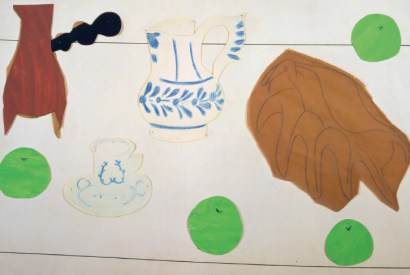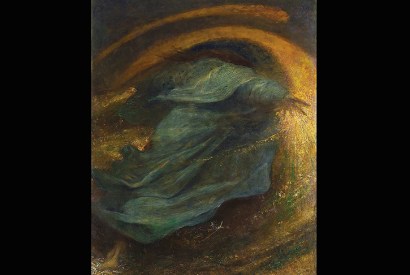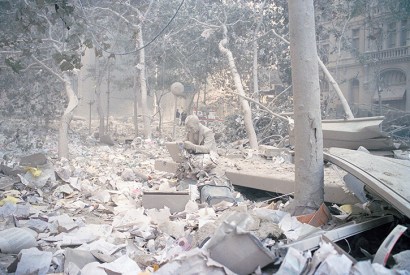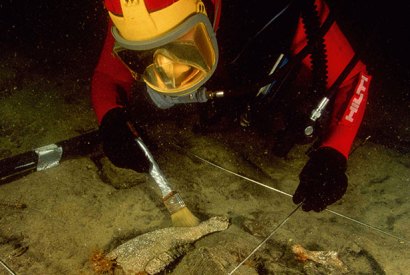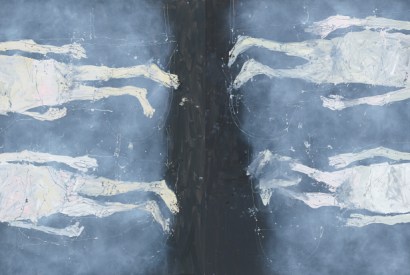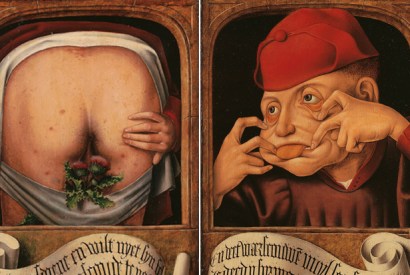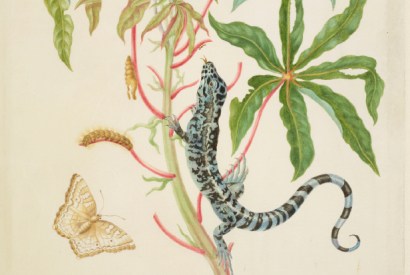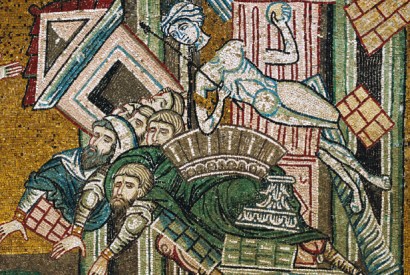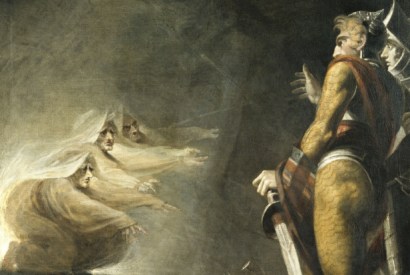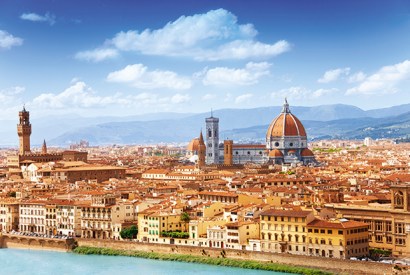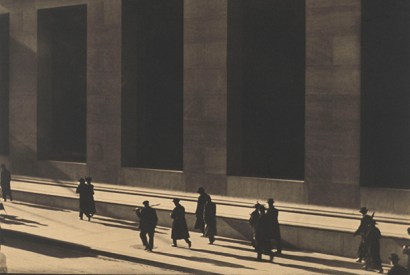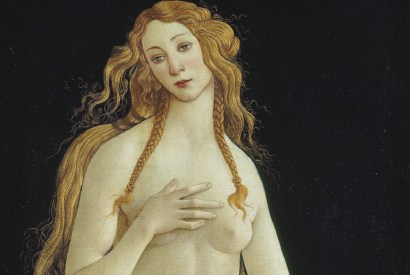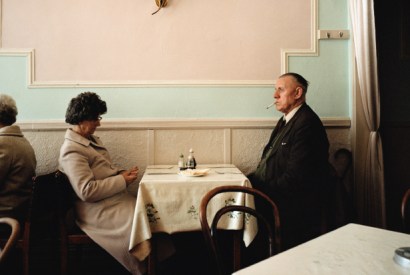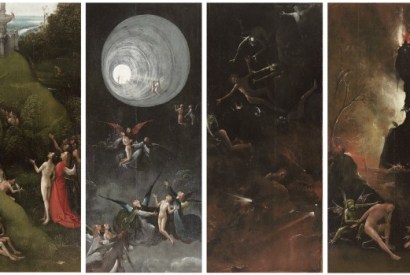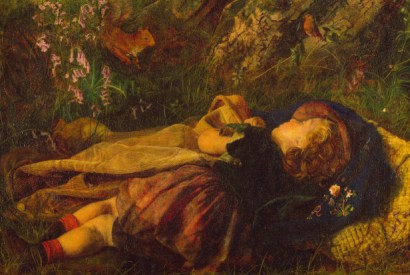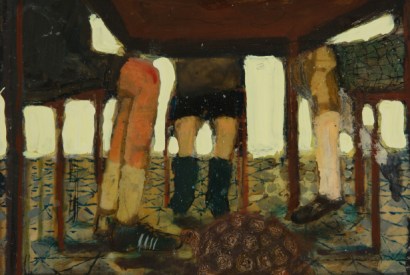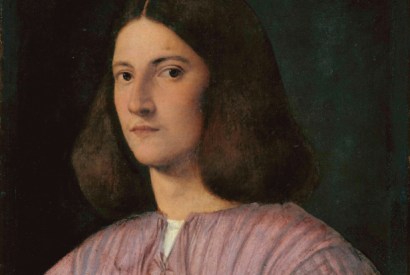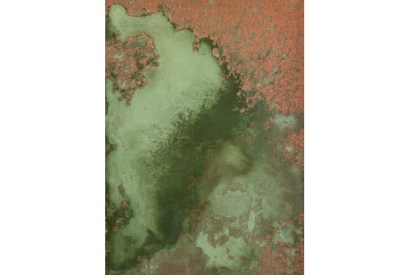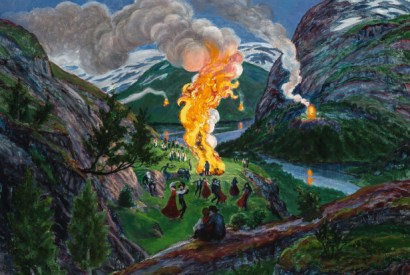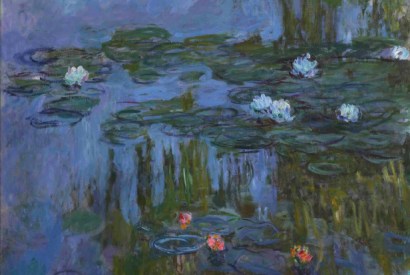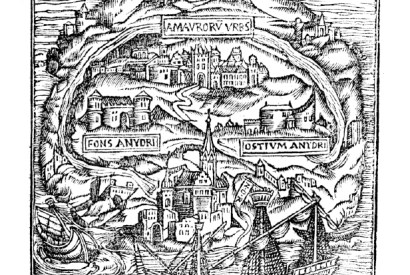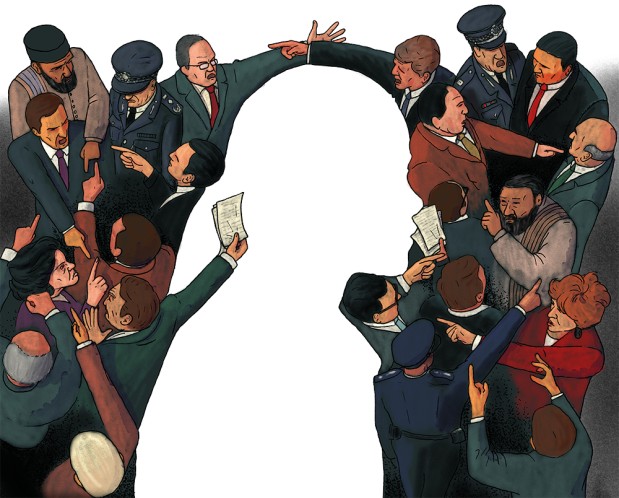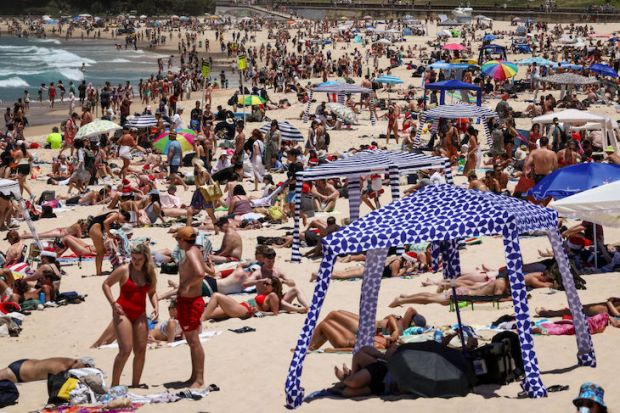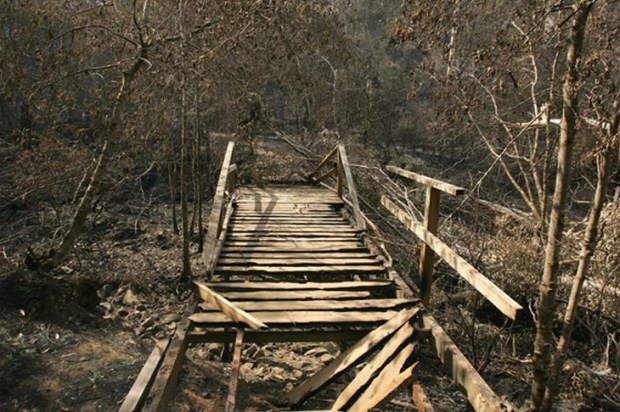Exhibitions
Object lesson
Why did Henri Matisse not play chess? It’s a question, perhaps, that few have ever pondered. Yet the great artist…
Maximum wattage
On his deathbed in 1904, George Frederic Watts saw a extraordinary spectacle. He witnessed the universe coming into being: the…
Grain of truth
We routinely feel emotional about materials — often subliminally. Which is why new substances and techniques for manufacturing have provoked…
Repo women
Aren’t you getting a little sick of the white cube? I am. I realised how sick last week after blundering…
The treasures of Alexandria revealed: British Museum’s Sunken cities reviewed
It was not so unusual for someone to turn into a god in Egypt. It happened to the Emperor Hadrian’s…
The lifts are lovely: Tate Modern’s extension reviewed
Tate Modern, badly overcrowded, has built itself a £260 million extension to spread everyone about the place more. This means…
As he approaches 80, the German master Georg Baselitz contemplates the end
‘In many ways,’ Georg Baselitz muses, ‘I behaved against the grain of the times I grew up in.’ The era…
This Parisian exhibition has rewritten the story of art
Why do we put one work of art beside another? For the most part museums and galleries tend to stick…
The 17th century painter who hacked her way through Suriname in search of insects
Maria Sibylla Merian was a game old bird of entrepreneurial bent, with an overwhelming obsession with insects. Born in Frankfurt…
Too much boob – not enough woman: Undressed at the V&A reviewed
The V&A is selling £35 Agent Provocateur pants. This is, of course, a business deal because Agent Provocateur — along…
Norman Sicily was a multicultural paradise – but it didn’t last long
There are lessons to be learned from the disintegration of this once majestic multicultural Norman kingdom, says Martin Gayford
Why do some museums insist on playing piped music into exhibitions?
There was a genteel brouhaha last year — leaders in the Times, letters to the Telegraph, tutting in the galleries…
Botticelli’s jokes and the quarrelsome, creative spirit of Florence
Once, it seems, Sandro Botticelli played a trick on a neighbour. Next door was a weaver who possessed eight looms.…
A lot of art is trickery - and all the better for it
One day, in the autumn of 1960, a young Frenchman launched himself off a garden wall in a suburban street…
V&A's Botticelli Reimagined has too many desperate pretenders
When Tom Birkin, hero of J.L. Carr’s novel A Month in the Country, wakes from sleeping in the sun, it…
Hell made fun – the joy of Hieronymus Bosch
The 20th-century painter who called himself Balthus once proposed that a monograph about him should begin with the words ‘Balthus…
Twee, treacly and tearful: Pre-Raphaelites at the Walker Art Gallery reviewed
Dear, good, kind, sacrificing Little Nell. Here she is kneeling by a wayside pond, bonnet pushed back, shoes and stockings…
Part bijou Kiefer, part woozy Vuillard: the paintings of Andrew Cranston
The ten vignettes that punctuate the white walls of the Ingleby Gallery invite us to step into the many-chambered mind…
Renaissance master? Rascal? Thief? In search of Giorgione
Question-marks over attribution are at the heart of a forthcoming Giorgione exhibition. Martin Gayford sifts through the evidence
Warhol the traditionalist: the Ashmolean Museum show reviewed
When asked the question ‘What is art?’, Andy Warhol gave a characteristically flip answer (‘Isn’t that a guy’s name?’). On…
Nikolai Astrup - Norway’s other great painter
The Norwegian artist Nikolai Astrup has been unjustly overshadowed by Edvard Munch. But that is about to change, says Claudia Massie
The link between herbaceous borders and the avant-garde
Philip Larkin once remarked that Art Tatum, a jazz musician given to ornate, multi-noted flourishes on the keyboard, reminded him…
John Dee thought he could talk to angels using medieval computer technology
John Dee liked to talk to spirits but he was no loony witch, says Christopher Howse
Even Corbyn would find Thomas More’s Utopia too leftwing
Thomas More’s 1516 classic is a textbook for our troubled times, says William Cook

